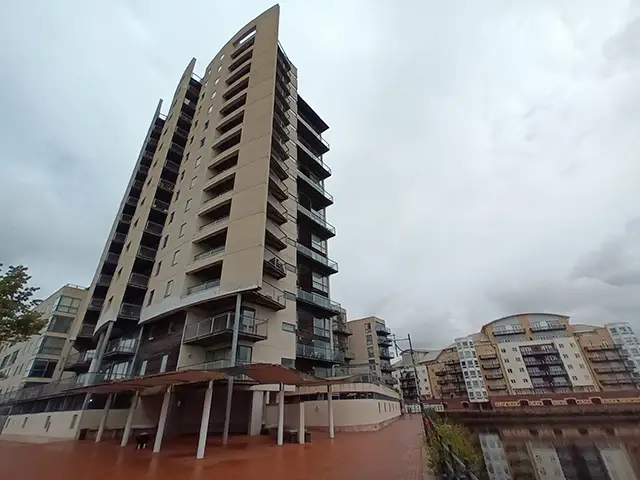Support quality, independent, local journalism…that matters
From just £1 a month you can help fund our work – and use our website without adverts. Become a member today

Proposed building safety laws risk “suppressing the appetite” of mortgage lenders to offer loans on flats, making properties effectively unsellable to most buyers, a committee has heard.
John Marr, from UK Finance – which represents the banking industry – expressed concerns about unintended consequences of the Welsh Government’s building safety bill.
The bill, which aims to create clear lines of legal responsibility for managing safety risks, would create three categories of building with different restrictions for each:
- category one: highest risk, at least 18 metres or seven storeys
- category two: medium risk, 11m to 18m or five or six storeys
- category three: lower risk, less than 11m and fewer than five storeys
Warning the bill could curb the appetite of mortgage lenders, Mr Marr said: “This could be so, particularly if the proposed obligations/duties in relation to category three buildings mean no flat owner is willing to take on these responsibilities.
“This could result in a lack of management/maintenance for such buildings.”
Mr Marr added that additional legal and cost burdens could “accelerate further flight” from the private-rented sector in Wales, limiting the available supply of homes.
‘Neglected’
Under the bill – which was brought forward to ensure the 2017 Grenfell Tower tragedy, in which 72 people died, can never happen again – flat owners could become the legally responsible “accountable person” for a building’s safety.
UK Finance warned owners may lack the “skills, resources or willingness” to take on such a role, resulting in critical safety works being delayed or neglected.
In written evidence to the Senedd’s housing committee, which is scrutinising the bill, Mr Marr wrote: “If a repossession takes place, lenders would not expect then to be responsible for funding outstanding repairs potentially, to the further financial detriment of the former owner.
“Lenders would also need to understand the affordability consequences of obligations on borrowers… some of which might fall to individuals rather than collectively.
“The overall effect of the proposals particularly for category three buildings could impact lender appetite to lend on such properties.”
Mr Marr said the broad definition of “accountable person” raises concerns about exposing lenders to duties and liabilities despite their limited operational control over the property.
‘Implementation failure’
Concerns about the bill’s real-world impact were echoed by councils and fire services, which warned of demands on an “already overstretched” workforce.
The Welsh Local Government Association (WLGA), the national voice of Wales’ 22 councils, described plans to designate councils as building safety authorities as unrealistic.
While supportive of the bill’s overarching aims, the WLGA pointed to funding pressures, workforce capacity challenges and limited technical expertise.
The umbrella organisation told Senedd Members: “Local authorities will struggle to fulfil these new responsibilities effectively, potentially undermining the bill’s objectives.”
Warning of implementation failure, the WLGA said financial estimates that accompanied the bill significantly underestimate the costs and demands on councils.
‘Short-sighted’
Fire services similarly warned of the financial impact – cautioning that without funding, the new legal duties will force them to divert resources away from existing safety work.
In its written evidence, the WLGA said: “Introducing new responsibilities without adequate funding is short-sighted, especially given the financial pressures facing local authorities.
“With England pursuing full cost recovery, it is questionable why Wales would opt for a less robust or cheaper model – particularly given the high stakes involved in building safety.”
In its evidence, an all-Wales housing expert panel depicted plans for 22 building safety authorities as unworkable – particularly in light of a “massive skills gap” – advocating a regional model based on the three fire service areas.
The Senedd’s housing committee will take oral evidence on the bill from representatives of councils, fire and rescue services, and UK Finance during its meeting on October 1.
Support quality, independent, local journalism…that matters
From just £1 a month you can help fund our work – and use our website without adverts.
Become a member today
